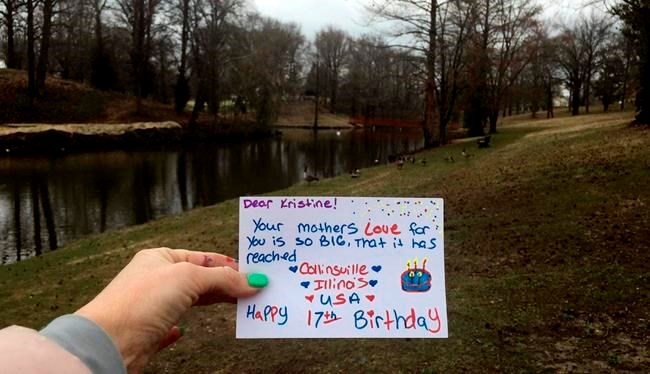NEW YORK — Heidi Van Roekel makes instructional art videos for YouTube when coronavirus news overwhelms her. Bill Webb takes his boat out. Stacy Mitchell searches her TV for something — anything — to make her laugh.
Paradoxically, Kevin Reed, a software designer from Kenmore, Washington, has binged “The Walking Dead” after turning off the news. He'd rather watch fake, flesh-eating zombies than a real-life pandemic.
It's no surprise that news outlets are in demand with a story that directly affects so many people, whether they've gotten sick, lost jobs or are locked down at home. A Pew Research Center survey taken the third week of April found that 88
Yet that takes a toll. Pew also found that 71
“A week and a half ago I just had to throttle it down,” said Webb, a writer and consultant who lives in Sarasota, Florida. “I think you get overwhelmed by it. You're sitting in your house and there's nothing you can do about things.”
Mitchell, a consultant in human resources from Dayton, Ohio, said she watches the “Today” show in the morning, the network evening news and tries to catch her state's governor, Mike DeWine, at least at the beginning of his regular briefings.
But she hit a wall.
“It was just COVID-19 overload,” Mitchell said. “I was very anxious. I had a full-blown anxiety attack and I decided that I was not going to watch more of that stuff.”
Science supports them. Roxane Cohen Silver, Dana Rose Garfin and E. Alison Holman, researchers at the University of California at Irvine who have been studying the affect of prolonged media exposure to bad news following the Sept. 11, 2001 terrorist attacks, wrote an article for Health Psychology magazine in February — before coronavirus was even on the radar for many Americans — warning of this effect.
People who watch too much can have nightmares, feelings of anxiety and symptoms of post-traumatic stress disorder, Silver said. In the long run, they're more likely to report cardiovascular disorders.
Some people who consumed a heavy diet of news about the Boston Marathon bombing in 2013 were actually more stressed out than people on the scene, the researchers found.
“The news is distressing,” Silver said. “There are not many uplifting stories. It’s the repetitive bad news that is so draining.”
The pandemic story is particularly difficult because it's not a single event that fades with time. There's no telling how long it will go on. Because of unemployment and stay-at-home orders, more people have time to follow it.
That's precisely what is happening with Jose Moreno of San Antonio, Texas, a caretaker for his elderly mother. The news makes him overthink, he said.
“When I leave the house, I’m wondering, ‘Am I doing something that I shouldn’t be doing?’ It’s a lot of stress,” he said.
Some news organizations recognize the impact of a steady diet of sobering news and have sought ways to offer relief.
CBS News reporter Steve Hartman, with his regular “On the Road” series grounded, is “teaching” an online class in kindness. On the other side of the world, the Sydney Morning Herald and other Australian newspapers hunt for stories to fit their “Good News Initiative.”
During a meeting with fellow editors at The Associated Press one morning in March, running down a particularly distressing list of the day's stories, Sally Stapleton offered some light in the dark clouds.
She promoted a story about a homebound woman in Norway who asked people on Facebook to send birthday greetings to her children, and people all over the world did. A college student sent home to New York after classes were suspended organized 1,300 volunteers in three days to shop and make deliveries for shut-ins.
The stories got such a positive reaction that “One Good Thing” is now a daily feature. AP journalists all over the world compete to have a story included.
“I just think it's news,” said Stapleton, global religion editor. “These stories are everywhere, all the time. Mostly we ignore them. This is not a time to ignore them.”
Fox News has similarly collected more than 700 television and online stories showing resiliency under the “America Together” banner. The featured articles have received more than 25 million page views.
“If you're in a position to spread these stories that warm the heart at a time when there is uncertainty, sadness and fear, I think it's our obligation to do so,” said Fox News anchor Dana Perino.
Even people who need to step away from the tough news recognize that it's essential.
Lucretia King, a private tutor from San Joaquin County in California, has lost her job since the outbreak began. But her husband and son both work, so she follows the news and texts them if there's anything they need to know urgently.
UCal-Irvine's Silver stays informed by reading online news sites in the morning and evening, and gets notifications during the day. She said she watches no television.
She doesn't expect many others will avoid TV altogether — her husband and son certainly don't — but recommends against keeping the TV or news radio on constantly in the background.
“People should make a conscious effort to monitor their exposure,” Silver said.
Van Roekel, a stay-at-home mom from Los Alamos, N.M., said she limits her exposure to national news to four days a week, and makes sure she stays away from social media before bedtime.
She said her husband has been catching up with old sitcoms and she loves actor John Krasinski's YouTube series, “Some Good News.” Mitchell and her husband have watched Disney's “Avengers” movies. King checks out home makeovers on HGTV.
Everyone has a personal stress relief valve.
“You've got to take a break for your mental health,” Van Roekel said.
David Bauder, The Associated Press



